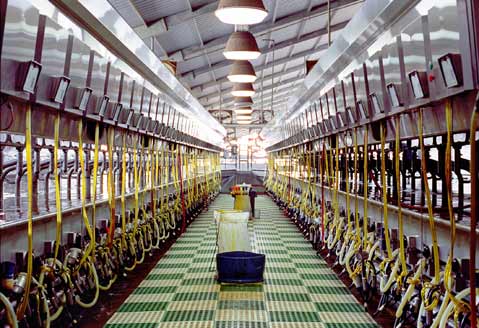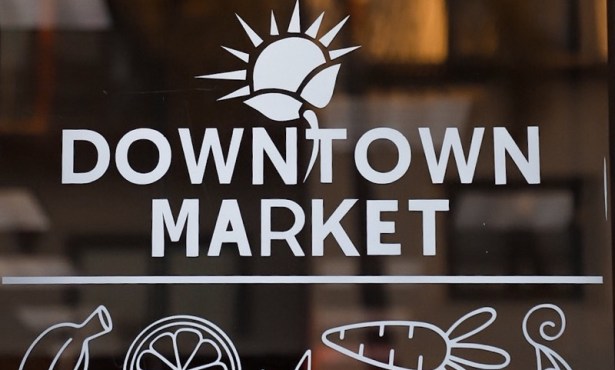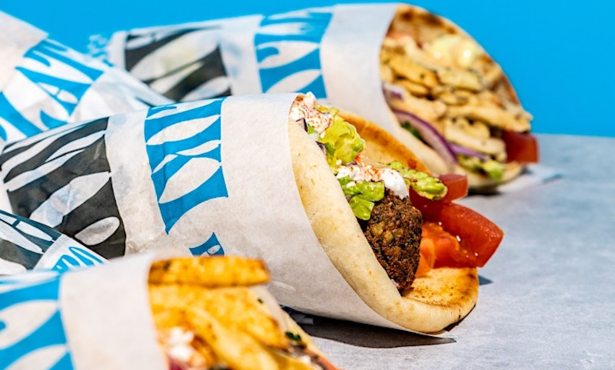Eats Don’t Fail Me Now
A UCSB Conference Looks at Food Sustainability and Security

“Even though I’ve been in academia for a quarter century now, I’ve always resisted the narrowness of academic publishing. If you have interesting work to share, why not write about it in an accessible way so that your audience can be even broader?” asked Darra Goldstein, founding editor of Gastronomica: The Journal of Food and Culture, in an email. “One of my goals is to get everyone talking. Especially when we talk about food, there is so much we can learn from practitioners in the field-not just chefs, but nutritionists, food photographers, stylists, and passionate amateurs. This conference is great because it acknowledges and embraces the multifaceted nature of food studies. It’s inclusive rather than exclusive, which should encourage participants to think in new and creative ways about food and its place in society.”
Goldstein is referring to Food Sustainability + Food Security, a free conference at UC Santa Barbara from February 5-7 where she will be the keynote speaker. In addition to academics on panels, the two days will feature activists and farmers, photographers and filmmakers, social scientists and scientists exploring the security side of the equation, and scholars from the humanities exploring the sustainability side. “We want to take the focus off taste and put it on the systemic,” said organizer Allison Carruth, a postdoctoral fellow in UCSB’s English department. “One of our thoughts was to bring these two key concepts-sustainability and security-together as there are some inherent conflicts. We want to examine how we can be both regional and local while having a global framework.”
Paper topics on panels run the gamut, from Food Security and the Repercussions of the Global Food Industry on Latino Households in Santa Barbara County to Sheep Dog Training, Animality, and Local Meat Production. Carruth is perhaps most looking forward to Friday evening’s roundtable titled Some Futures for California Agriculture about which she explained, “We are very deliberately trying to invite other people besides academics. Our goal has been to bridge academic research with what has been going on in this community-they have much to contribute to this conversation. Not to mention almost all of the academics are involved in the field outside of their research. There’s so much cross-pollination.” That roundtable will include representatives from the Orfalea Foundation’s s’Cool Food Initiative, Fairview Gardens, and the I.V. Food Co-op, among others.
Beyond the sessions, Carruth’s humanities background led her to reach out to the arts. The conference will present a screening of the Academy Award-nominated documentary The Garden on Thursday, and director Scott Hamilton Kennedy will be on hand to answer questions. His film captures the struggle to preserve the country’s largest urban garden in Los Angles from developers, and Kennedy asserted, “It’s an honor to play something like this conference as it’s our core audience: people in sustainability, in the green movement.”
The conference will also feature a photography exhibit by Barron Bixler, called A New Pastoral: Views of San Joaquin Valley. Carruth aptly describes Bixler’s work as “like ghost towns, images of these large industrial farms and dairies in which he deliberately captures an absence of people.” Bixler explained, “During the past century, and especially since World War II, we’ve made certain decisions to be able to farm on that kind of massive, industrial scale. Many of these decisions have brought us to a flashpoint in terms of issues like environmental degradation, agricultural policy making, water rights, climate change, and larger ethical concerns around the genetic modification of edible organisms. : I hope my contribution is to help ground conference-goers in the reality of what it means to farm in this way, and-whether for good or bad-to give the San Joaquin Valley its due.”
The good news not just for foodies but plain old eaters is that at least keynote speaker Goldstein thinks there is hope. “I’m idealistic enough to believe that food can be a wonderful tool for promoting social change-whether by furthering peace initiatives in regions of conflict; mitigating prejudice by making the ‘other’ seem less strange; or changing people’s eating habits (as is happening in our own country with the local and organic movements),” she claimed. “One reason it works is because the sharing of food is intrinsic to just about every culture-it’s a sign of hospitality and respect. So if we can bring people together over a meal, there is a chance that barriers will begin to be broken down.”
The conference might not be a meal, but it’s sure to provide plenty of food for thought.
4•1•1
UCSB’s Food Sustainability + Food Security conference occurs February 5, from 11:30 a.m.-6 p.m., and February 6, from 9 a.m.-6:30 p.m., in the Interdisciplinary Humanities Center’s McCune Room, HSSB 6020. The Garden screens in Girvetz Hall Theater on February 5, at 8 p.m. Barron Bixler’s photographs will be on display in the IHC Seminar Room, HSSB 6056 both days. See english.ucsb.edu/faculty/acarruth/food_conference.



